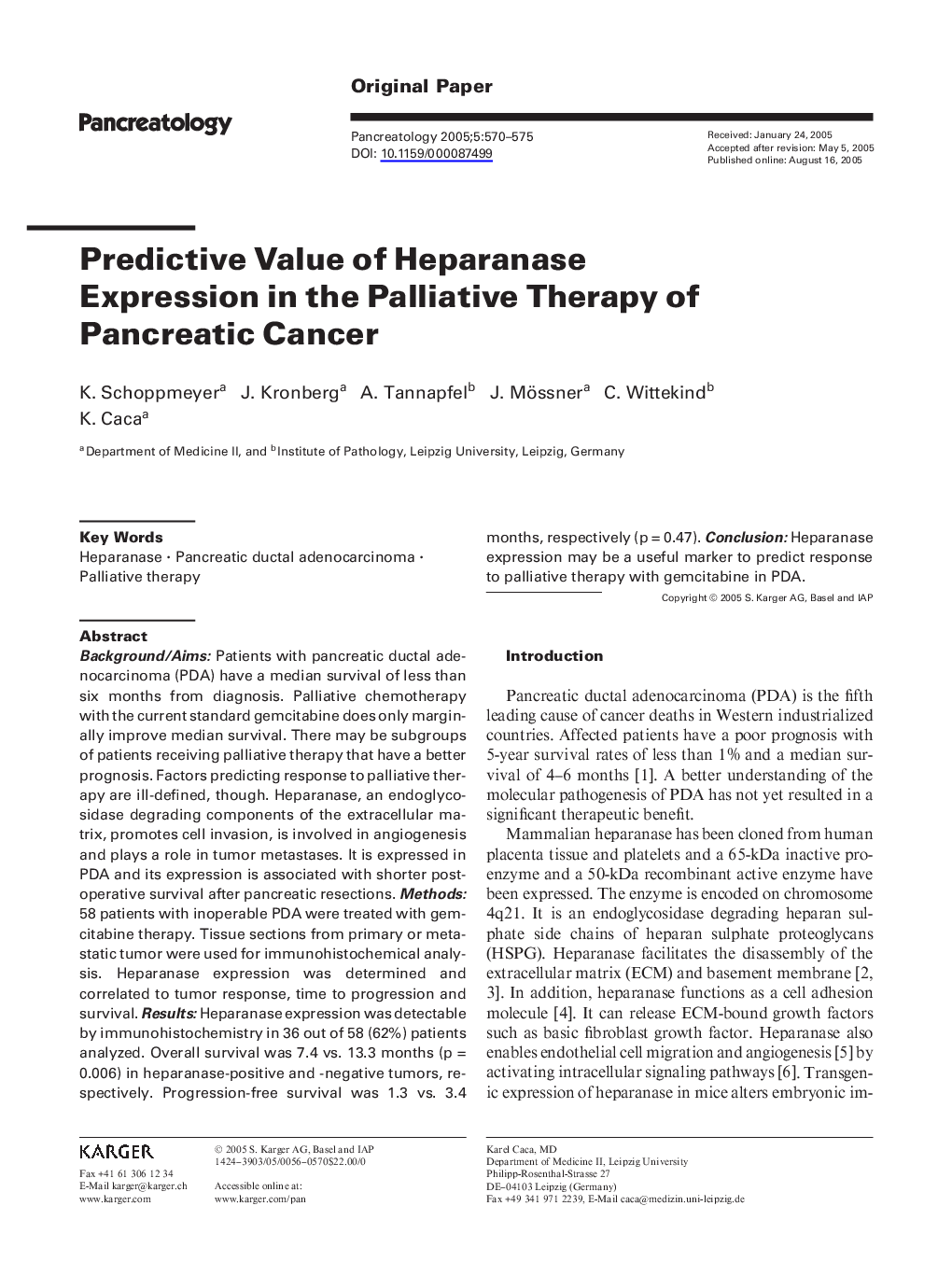| Article ID | Journal | Published Year | Pages | File Type |
|---|---|---|---|---|
| 9256105 | Pancreatology | 2005 | 6 Pages |
Abstract
Background/Aims: Patients with pancreatic ductal adenocarcinoma (PDA) have a median survival of less than six months from diagnosis. Palliative chemotherapy with the current standard gemcitabine does only marginally improve median survival. There may be subgroups of patients receiving palliative therapy that have a better prognosis. Factors predicting response to palliative therapy are ill-defined, though. Heparanase, an endoglycosidase degrading components of the extracellular matrix, promotes cell invasion, is involved in angiogenesis and plays a role in tumor metastases. It is expressed in PDA and its expression is associated with shorter postoperative survival after pancreatic resections. Methods: 58 patients with inoperable PDA were treated with gemcitabine therapy. Tissue sections from primary or metastatic tumor were used for immunohistochemical analysis. Heparanase expression was determined and correlated to tumor response, time to progression and survival. Results: Heparanase expression was detectable by immunohistochemistry in 36 out of 58 (62%) patients analyzed. Overall survival was 7.4 vs. 13.3 months (p = 0.006) in heparanase-positive and -negative tumors, respectively. Progression-free survival was 1.3 vs. 3.4 months, respectively (p = 0.47). Conclusion: Heparanase expression may be a useful marker to predict response to palliative therapy with gemcitabine in PDA.
Related Topics
Health Sciences
Medicine and Dentistry
Gastroenterology
Authors
K. Schoppmeyer, J. Kronberg, A. Tannapfel, J. Mössner, C. Wittekind, K. Caca,
